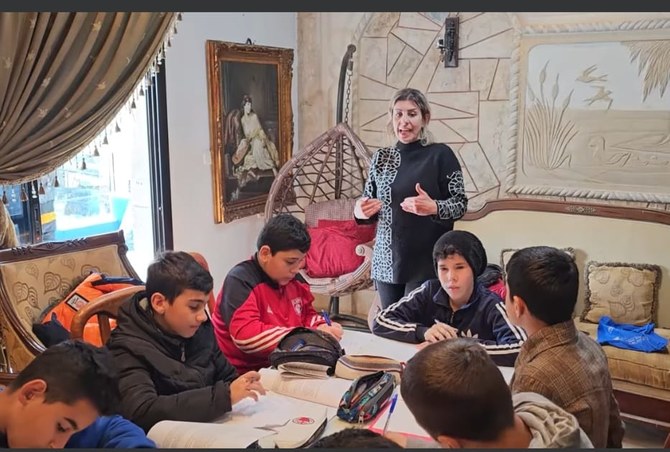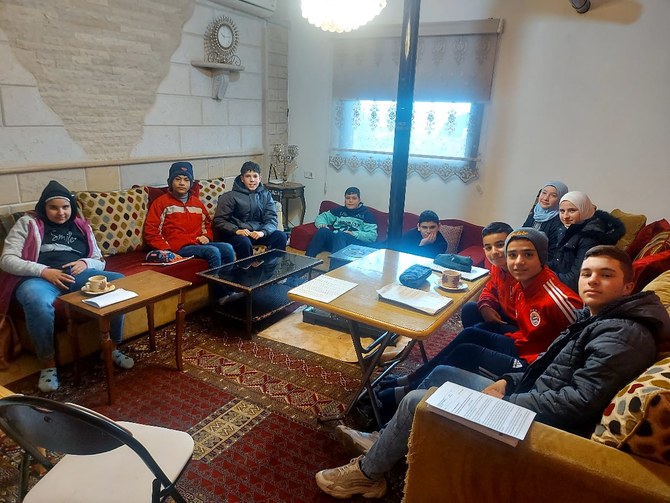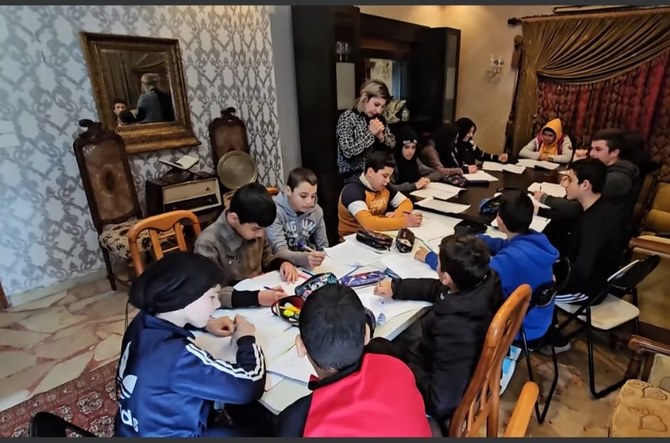





DUBAI: With many of her colleagues out on strike, a Lebanese teacher has converted her lounge into a classroom so that her students do not miss out on their studies.
Lebanon is in the grip of a financial and economic crisis and its public school teachers are seeking a wage increase from the government in a dispute that has been ongoing for the past two months.
“I couldn’t sit down any more and watch my seventh and eighth graders miss another school year. What they had already lost during the Covid lockdowns was enough,” Sawsan Mohammad Diab told Arab News from her home in the village of Zawtar El-Gharbiyeh.
“As many of them had been contacting me via WhatsApp or email to ask questions about the syllabus, I thought why not bring them over to my residence and answer their questions … and that’s how this humane and ethical initiative started.”
More than 20 students had used the makeshift classroom, she said.
Diab, who teaches English at her village’s public school, said she did not charge for the extra classes as many families would not be able to afford them. But she hopes they will provide a lesson for the industry.
“I would like to call on my peers not to be materialistic, as education is a noble message,” she said. “We have to achieve this humane and educational duty and obligation toward our students.”
Diab said she came up with the idea about a month ago and advertised it via a parents group on WhatsApp. Most of the children live nearby so it was easy to put into practice.
“It was obvious from the students’ questions that they were hungry to learn,” she said. “I felt responsible and didn’t want my students’ efforts to go to waste.”
The success of the scheme led to several of Diab’s colleagues following suit.
“The Arabic and math teachers took up a similar approach,” she said.
Since the start of the financial crisis many of Lebanon’s public schools have been forced to close due to a lack of funds. And although about 60 percent of the country’s 1.25 million students attend private schools, that figure has been in decline as parents struggle to find the fees.